Herb seeds for indoor garden, Creating an indoor herb garden is a wonderful way to bring fresh flavors, soothing aromas, and natural beauty into your home, especially in a country like India, where herbs are an essential part of daily cuisine and holistic wellness practices. Whether you live in a bustling city apartment or a cozy home with limited space, an indoor herb garden allows you to cultivate a variety of herbs in a controlled environment with minimal effort.
Why Grow Herbs Indoors in India?
Growing herbs indoors has a unique appeal in India, where climatic conditions can vary from region to region. Indoor gardening provides a consistent environment, shielded from extreme weather, pests, and pollution. By growing herbs indoors, you can ensure a year-round supply of fresh, flavorful, and aromatic ingredients for cooking, as well as beneficial plants for herbal teas and traditional remedies. An indoor herb garden is also an eco-friendly choice, allowing you to grow organic produce without pesticides and reducing reliance on store-bought herbs.
Different types of herbs plants for indoor growing in India
India offers a wide variety of herbs that can thrive indoors, ranging from those used in traditional Indian cuisine to those valued for their medicinal properties. Here are some popular herbs well-suited for indoor gardening in the Indian climate:
1. Tulsi (Holy Basil)
- Botanical Name: Ocimum sanctum
- Benefits: Revered in Ayurveda, Tulsi is known for its immune-boosting and stress-relieving properties. It’s also a natural air purifier.
- Growing Requirements: Tulsi grows well in indirect sunlight and can thrive in slightly humid conditions, making it suitable for indoor spaces. Click here to buy tulsi plant online.
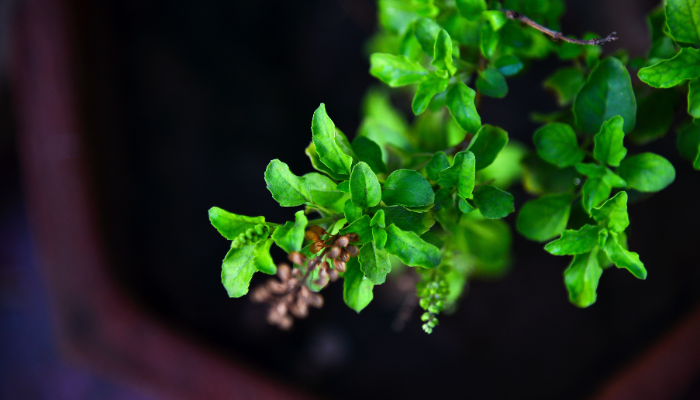
2. Mint (Pudina)
- Botanical Name: Mentha spp.
- Benefits: Known for its cooling properties, mint is widely used in Indian beverages and chutneys. It aids digestion and offers a refreshing flavor.
- Growing Requirements: Mint prefers moderate sunlight and regular watering, making it ideal for windowsills. However, keep it in a separate container as it spreads quickly.
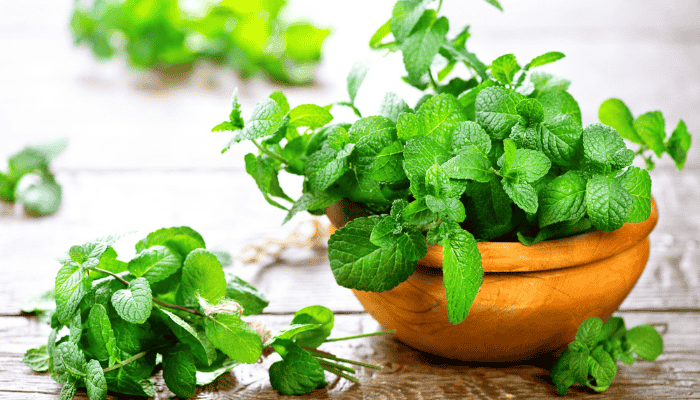
3. Coriander (Dhaniya)
- Botanical Name: Coriandrum sativum
- Benefits: A staple in Indian cooking, coriander leaves and seeds add flavor to many dishes. Its leaves are high in antioxidants and have antimicrobial properties.
- Growing Requirements: Coriander grows best in bright, indirect sunlight and requires well-draining soil. It’s a fast-growing herb, so you can enjoy fresh leaves within weeks. Coriander seeds online purchase by clicking here.
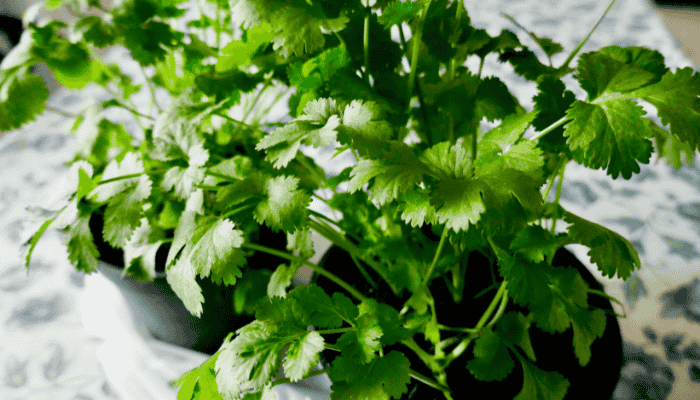
4. Fenugreek (Methi)
- Botanical Name: Trigonella foenum-graecum
- Benefits: Known for its distinctive aroma, fenugreek leaves are rich in iron and help regulate blood sugar levels.
- Growing Requirements: Fenugreek grows well indoors, especially in sunny spots. It is easy to cultivate and harvest, making it perfect for small spaces. Click here to methi seeds online buy.
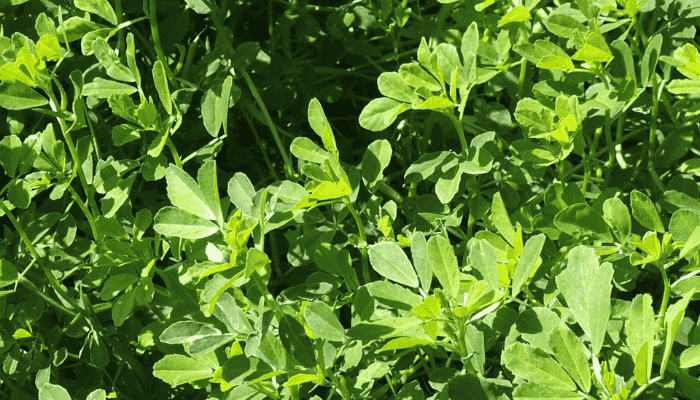
5. Parsley
- Botanical Name: Petroselinum crispum
- Benefits: Rich in vitamins A and C, parsley is known for its anti-inflammatory and detoxifying properties.
- Growing Requirements: Parsley requires moderate sunlight and regular watering. It is a slow-growing herb, but its hardiness makes it a good option for beginners.
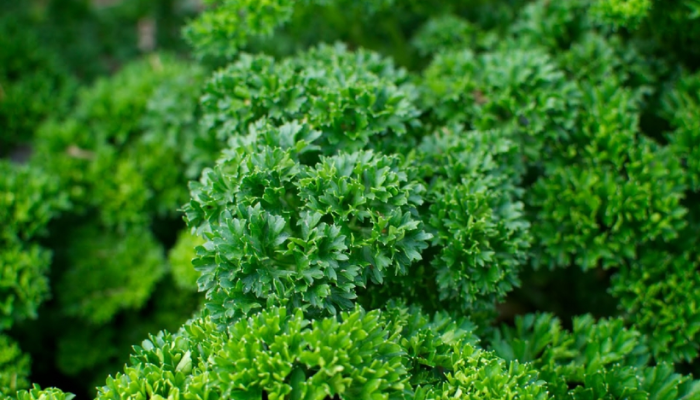
6. Lemongrass
- Botanical Name: Cymbopogon citratus
- Benefits: Popular for its refreshing citrus flavor, lemongrass has antibacterial properties and is widely used in tea and recipes for detoxification.
- Growing Requirements: Lemongrass loves sunlight and warm temperatures, making it a suitable indoor plant in sunny areas.
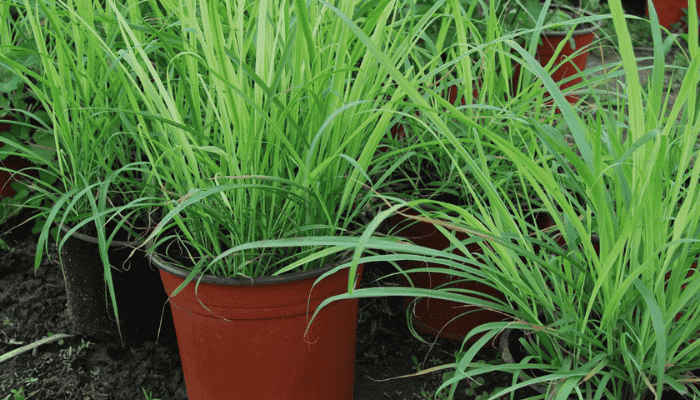
7. Curry Leaves (Kadi Patta)
- Botanical Name: Murraya koenigii
- Benefits: Essential in South Indian cooking, curry leaves are known for their antioxidant and anti-diabetic properties.
- Growing Requirements: Curry leaves grow best in a sunny spot, although they can tolerate some shade. They need slightly warmer conditions and well-draining soil. Click here to buy curry leaves plant online.
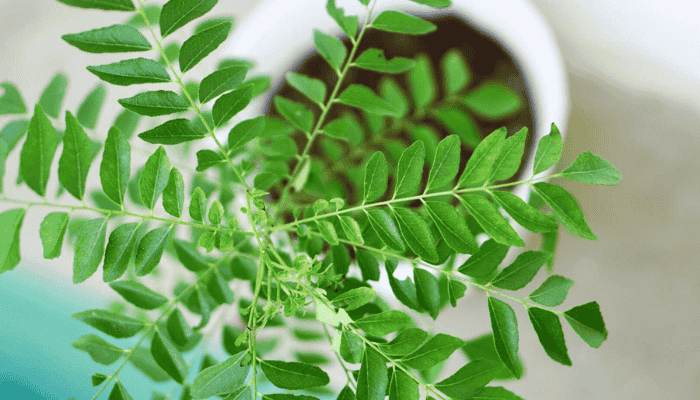
Setting Up an Indoor Herb Garden: Step-by-Step Guide
- Choose the Right Location
- Select a spot with ample natural light. Most herbs thrive with a minimum of 4–6 hours of direct sunlight daily. A sunny windowsill or balcony corner is ideal. In places where natural light is limited, you can use LED grow lights to supplement light.
- Selecting Containers
- Opt for containers with good drainage. Herbs don’t like waterlogged roots, so ensure each pot has drainage holes. Terracotta or ceramic pots are excellent choices as they allow airflow around the roots.
- Choosing Soil
- Use a well-draining potting mix. Regular garden soil can become compacted in pots, so a light, nutrient-rich potting mix is recommended. Adding some perlite or coco peat can improve drainage and aeration.
- Sowing Seeds
- Sow herb seeds according to their depth requirements. Some seeds, like coriander, should be lightly covered with soil, while others, like basil, need just a dusting of soil on top.
- Watering
- Water your herbs carefully. Herbs prefer slightly moist, but not soggy, soil. Overwatering can lead to root rot, so wait until the top inch of soil feels dry before watering.
- Humidity and Temperature Control
- Many herbs thrive in moderate humidity and temperatures between 18-24°C (65-75°F). If you’re in a dry climate, misting the plants or placing a shallow tray of water nearby can help maintain humidity.
- Regular Pruning
- Herbs benefit from regular pruning to encourage bushy growth and prevent them from becoming leggy. Eliminate any dead or yellowing leaves to boost plant vitality and ensure robust growth.
- Fertilizing
- Indoor herbs require minimal fertilization, but a light feeding with a balanced, water-soluble fertilizer every few weeks can help them thrive. Organic options like compost tea or vermicompost work well too.
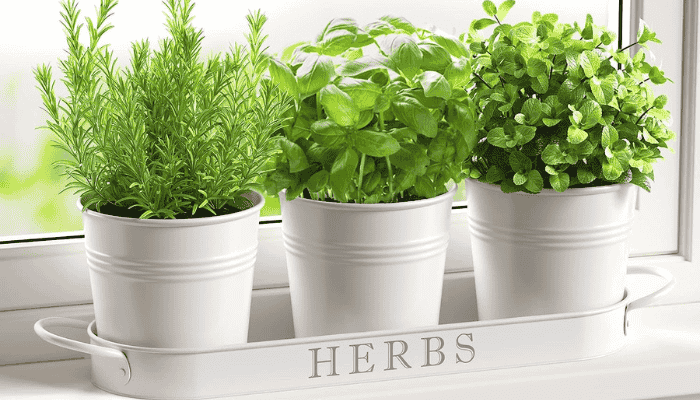
Challenges of Growing Herbs Indoors in India and Solutions
- Limited Sunlight:
- In apartments or urban areas, sunlight can be limited. Using LED grow lights can help provide the required light spectrum for healthy growth.
- Humidity Variations:
- Humidity levels vary across regions. In dry climates, you may need to mist the plants regularly, whereas in humid areas, ensure proper ventilation to prevent fungal growth.
- Pest Control:
- Indoor plants can lure in pests like aphids and spider mites, turning your green oasis into a hidden battleground. Regularly inspecting plants and using natural insecticidal soap can help keep them pest-free.
- Space Constraints:
- If space is limited, try vertical gardening by placing small pots on shelves or using hanging planters to maximize space.
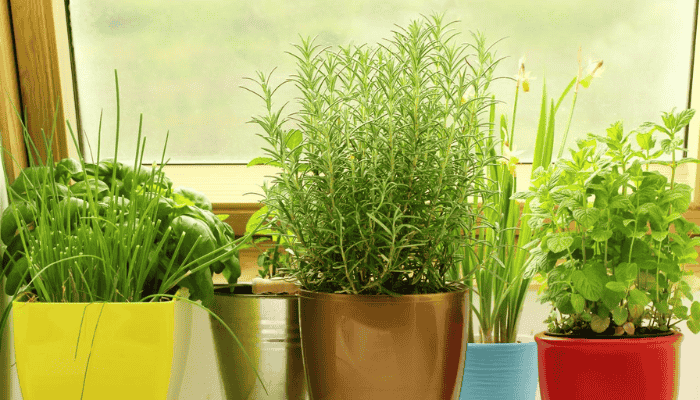
Benefits of Growing Herbs Indoors
- Health and Wellness: Fresh herbs are packed with antioxidants, vitamins, and minerals. Having an herb garden at home allows you to incorporate these healthy plants into your diet easily.
- Sustainability: Growing herbs indoors reduces reliance on store-bought herbs, which often come in plastic packaging. It’s an eco-friendly way to get fresh produce.
- Convenience: With an indoor herb garden, you have fresh herbs at your fingertips. No need to make trips to the market every time you need a handful of fresh leaves.
- Aesthetic and Aromatic Appeal: Indoor herbs add greenery to your home, creating a calming, natural aesthetic. Many herbs, like basil and mint, release pleasant aromas, enhancing the ambiance of your space.
- Educational and Therapeutic Value: Gardening itself is a therapeutic activity. Tending to plants can reduce stress, and watching your herbs grow is both educational and rewarding.
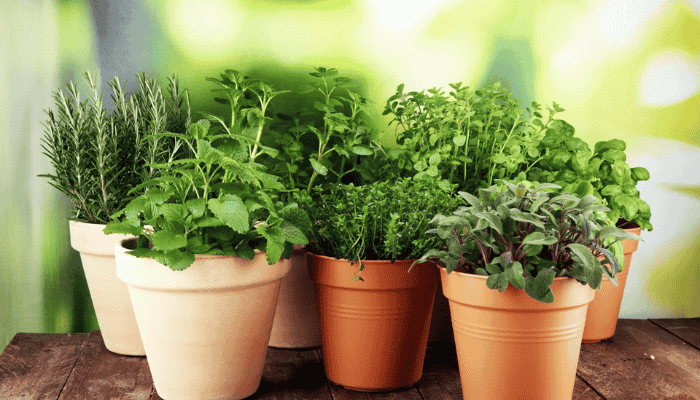
Using Fresh Herbs in Indian Cuisine and Wellness
- Fresh herbs for Indian cooking: Herbs like coriander, curry leaves, and fenugreek are staple flavors in Indian dishes. Adding fresh herbs from your garden can enhance the aroma and nutritional value of meals.
- Herbal Teas: Tulsi and mint are commonly used in teas for their soothing effects. Freshly plucked leaves add flavor and are beneficial for digestion and immunity.
- Natural Remedies: Herbs like lemongrass and basil are part of traditional Ayurvedic practices for relieving colds, indigestion, and stress.

Conclusion
Starting an indoor herb garden in India offers numerous rewards: you get fresh, homegrown ingredients, add greenery to your living space, and enjoy the therapeutic benefits of gardening. With the right setup and a bit of regular care, an indoor herb garden can thrive, providing you with a steady supply of flavorful, aromatic, and beneficial herbs year-round. Whether you’re a seasoned gardener or a beginner, growing herbs indoors can be a fulfilling and practical addition to your home life.


